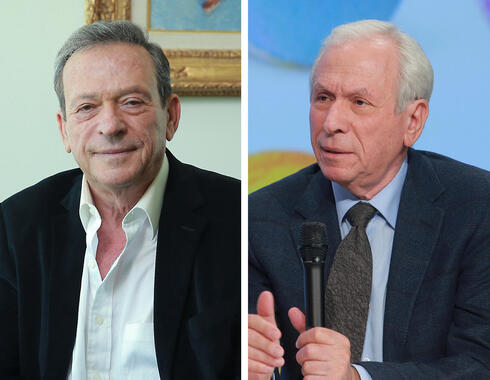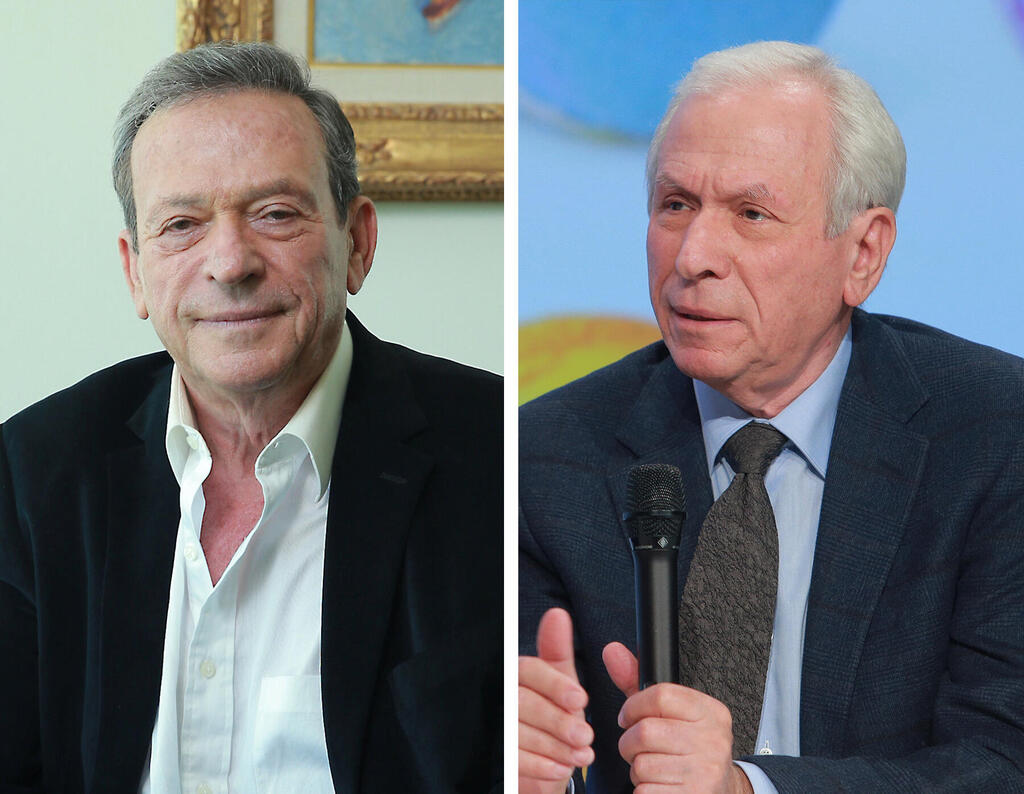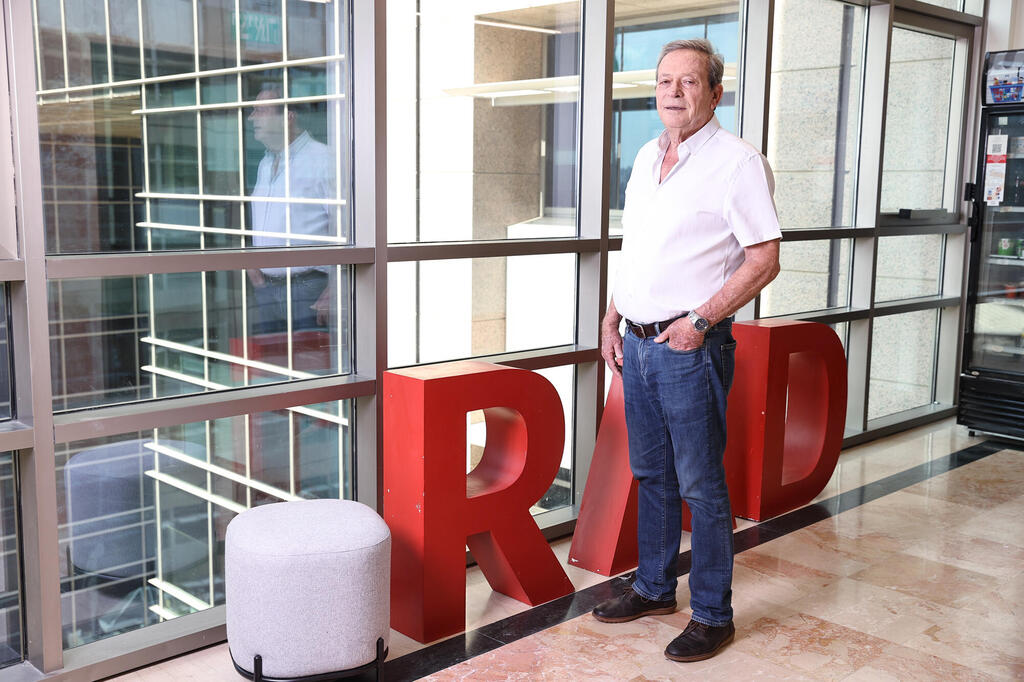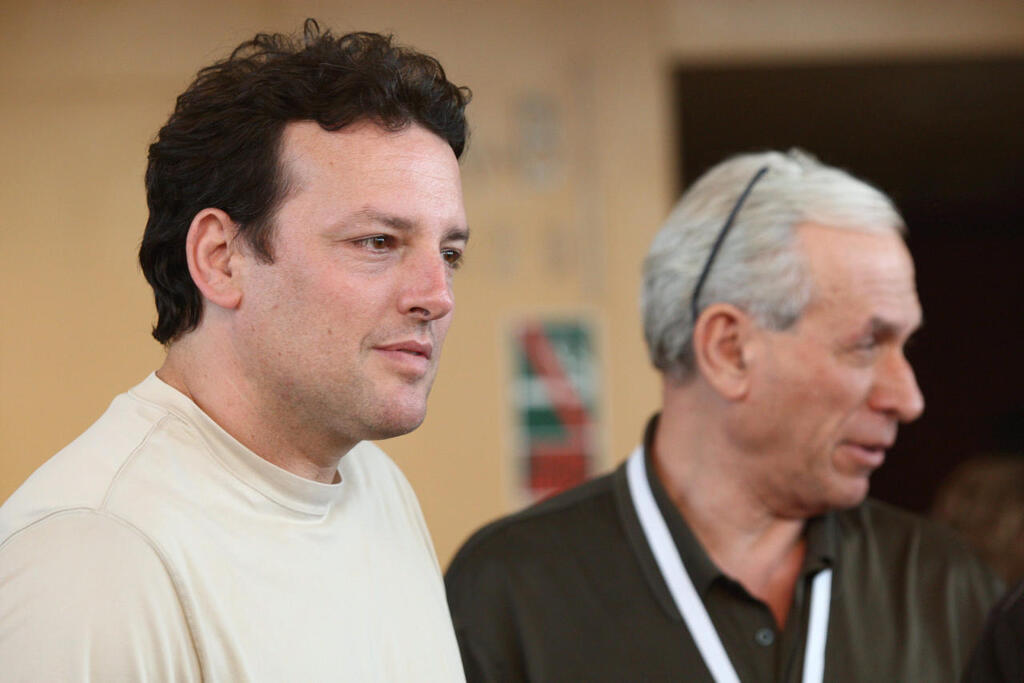
Uncertainty looms over future of Zisapel tech empire
Brothers Yehuda and Zohar Zisapel laid the first brick in Israel’s high-tech ecosystem, with their RAD group serving as the most fertile incubator from which the startup nation grew. But since they passed away within a year of each other, many in the industry wonder who will bring back the spirit of entrepreneurship to the group
When brothers Zohar and Yehuda Zisapel passed away within less than a year of each other, social media and mainstream media alike were awash with expressions of grief. There was hardly a businessman or high-tech executive who didn't want to talk about Zohar or Yehuda. Everyone had insights or memories to share about the two brothers who started the initial spark that ignited Israel’s tech engine.
But today, about a month and a half after Yehuda's death, things have changed; all attempts to discuss the future of Zisapels’ RAD group with their former acquaintances are met with reluctance and general ignorance. What remains of what was considered an Israeli tech empire? Who will lead the group? What are its most promising assets? It turns out that the mourners who rightfully lamented the deaths of the brothers are afraid to say what was once self-evident: no one knows what the vision of the group is, what the plans are for the day after, and who will take the reins.
The explanation typically provided is that RAD and its leaders kept a low media profile and didn't mingle with the tech glitterati, because their companies didn't rely on fundraising from external bodies but were funded from within the group. The Zisapel brothers’ empire didn't require external money and most of their companies were profitable. But the big question is whether it will be possible to restore the vibrant innovation of the group, what many call the flagship of Israeli high-tech, in the absence of their founding fathers.
Zohar Zisapel passed away from cancer in May 2023 at the age of 74, and Yehuda followed a year later, passing away just a month ago at the age of 82. Their families wrote of their passing: "Two are better than one." The two brothers were together all their lives, from their childhood in Tel Aviv, where their father owned a shoe store, to the establishment of the RAD group, which was a central hub in building the infrastructure for the startup nation.
Academic research published in 2012 by Prof. Molly Ellis and Prof. Israel Drori showed that the Zisapels served as Israeli tech’s most fertile incubator. Over 30 companies were founded by the RAD group since it was established by the Zisapels in the 1980s. 56 serial entrepreneurs emerged from it, founding 111 significant ventures of their own. The RAD group has thus served as one of the major contributors to the local tech scene. These numbers are actually even greater, as over the past decade, Zohar Zisapel was one of the most active angel investors in the local ecosystem and was involved in founding and managing several more promising and successful companies, including Wiz Co-founder and CEO Asaf Rappaport’s earlier venture Adallom which was sold to Microsoft; Argus Cyber Security which was sold to Continental for $400 million; unicorns Armis and Hailo; Innoviz which is traded on the Nasdaq; and Talon Cyber Security which was acquired by Palo Alto Networks for over half a billion dollars. If Zohar Zisapel's private greenhouse was a venture capital fund, it would probably have one of the best returns in the market.
A sleeping giant
Since the height of the hype of the communications revolution of the early 2000s, Yehuda Zisapel's enthusiasm for new startups waned: "The success rate of startups is very low, and the state of the country hasn’t been simple in the last year either," family members said, explaining why he stepped back from investing in new ventures. In recent years, Yehuda chose to focus mainly on RAD’s real estate development and philanthropic activities.
Even biomed accelerator RAD BioMed, founded by Yehuda’s ex-wife Prof. Nava Zisapel, stopped making new investments. While Zohar did continue to make investments, he did so privately and not as part of the RAD group. As a result, while 20 years ago the industry eagerly awaited the next hot thing to come out of the Zisapels' incubators, today the RAD group is perceived as a kind of sleeping giant. "The RAD group and the Zisapel brothers hold tremendous importance and great meaning for the Israeli high-tech industry, but they belong to the previous generation of innovation," says a senior figure in the industry who prefers not to be identified.
The point is that the Zisapels, like the previous generation of the elite of Israeli tech, rode the wave of the cellular and internet communication revolution of the 1990s. Both were graduates of the electrical engineering faculty at the Technion, and most of the group's subsidiaries operate in the field of communication infrastructure management, which was hot during the 2000 tech bubble. However, since then, the technology world has shifted to the cloud, AI, and even to quantum - areas where the group has almost no presence. Scions of the old guard of Israeli high-tech, the Zisapels didn't dream of raising hundreds of millions of dollars for cyber companies or producing software companies worth billions of dollars. Instead, they sent a long parade of small companies by today's standards to Wall Street armed with innovative and brilliant engineering solutions for the internet and cellular infrastructure field.
RAD’s continuity and prosperity to date has been a significant feat, as most of its peers have almost all crumbled: from Comverse, to Orbotech and Emblaze. Amdocs and Formula are among the few remaining companies from RAD’s generation, as well as Check Point, which is slightly younger. It remains unclear how the group will move forward now. While great respect is expressed for the Zisapel family's legacy, there are also whispers about the future of the group and questions about who will lead it into the future.
In truth, many of the RAD group’s ventures haven’t fulfilled their promise. Many were issued at the peak of the dot-com bubble which burst in 2001 and have not really recovered since. Chinese manufacturers have copied a lot of their products and sell them cheaply. Radware, the group’s largest company in terms of market value and remains its biggest hope, is almost 30 years old and has not managed to pass half a billion dollars in revenue. Its market reached $1 billion only briefly, while its competitor, Akamai, established by Daniel Lewin, who was killed in the 9/11 attacks, is traded at a valuation of around $15 billion. At the height of the tech boom in 2021, there was speculation that a private investment fund was interested in acquiring Radware for $1.7 billion, but a deal was never reached, and the stock has since moved away from those valuation levels.
Ceragon, RAD’s largest company in terms of revenue, and considered to have the best technological solution in its market for cellular networks, has also failed to translate this into performance and is traded at only $250 million. RADCOM and Silicom are too small, even in terms of the Tel Aviv Stock Exchange. In fact, all of RAD’s public companies barely make up a cumulative value of $1 billion together and fail to reach $1 billion in annual revenues. One of the questions that no one dared to ask in the past and might arise now is whether to retain small and poorly traded public companies or to consider delisting or merging some of those which operate in similar areas, which would save costs.
The second arm of the group is the private companies under Bynet who operate in the local computing and integration infrastructure market. Two years ago, the Zisapel family deviated from its tradition of issuing companies on Wall Street and tried to issue Bynet Computers, the largest company in the group, on the Tel Aviv Stock Exchange. The offering revealed a typical company profile of the group: a profitable company that grows slowly. In 2021, its revenues increased by 10% to NIS 1.4 billion ($372 million) with a profit of NIS 42.6 million ($11.3 million). The IPO attempt was given the cold shoulder by institutional investors, who were actually the first to say out loud what no one in the high-tech industry would say: the company's track record against the capital market is not impressive. Even in the IPO plans for Bynet Computers, the management did not present clear plans for the future.
The third arm of the company is investment in the medical field and medical equipment under RAD BioMed. The activity began with the establishment of Neurim by Nava Zisapel, a neuroscientist who developed Circadin, a popular melatonin-based drug for sleep disorders. Since Nava’s divorce from Yehuda a few years ago, BioMed made few investments, which were typically led by Nava. In recent years, Zohar became more interested in the medical field, especially after contracting cancer about a decade ago.
Almost absurdly, it seems that the real estate arm of the group is its most valuable asset. RAD owns over 300,000 square meters of office space in Tel Aviv’s Ramat Hahayal neighborhood, in Jerusalem’s Har Hotzvim high-tech industrial park, and also in New Jersey. Almost all of the group's companies sit in buildings owned by RAD Properties, but it also has external tenants. This activity has been led in recent years by Nava Zisapel as well as her daughter Karmi.
The battle for succession
Zohar and Yehuda were careful in recent years to separate the holdings as much as possible. For example, Zohar no longer held shares in Radware which is exclusively owned by Yehuda's family. On the other hand, Heli Bennun, Zohar's partner, is the chairman of Radcom, which has no presence from Yehuda's family. However, the group’s activities and assets are many, and require a deliberate hand to manage them, and perhaps liquidate some. Some have speculated that a company like Matrix would be happy to acquire part of the Bynet group and investment funds like Fortissimo could be interested in other assets. These decisions will have to be made by the next generation of the Zisapel family, which is no less complicated than the elder generations.
The next generation of the Zisapel family consists of Yehuda’s three children and Zohar’s two. Zohar, who at 29 was the youngest head of the electronics department in the vaunted technological division in the IDF’s intelligence corps, is considered a legendary figure. Yehuda, the elder brother, was more responsible for business and marketing. Zohar's two children, writer Klil Zisapel and doctor Michael Zisapel, were not involved in the group's business, but since their father's death have become more involved. Michael joined several boards in the past year, and is expected to leave his job at Ichilov Hospital to focus on the group.
Yehuda's three children are much more active and involved in managing the group. Roy is the Co-founder and CEO of Radware, and in recent years has joined several boards of companies within the group. Carmi Zisapel, a singer by profession, has maintained roles within the group over the years and has recently been involved in both real estate and RAD BioMed. The youngest daughter, Adi, worked at Neurim, but now resides in the USA and is studying for a master's degree at Stanford University.
"Like many family businesses, RAD faces the challenge of succession. Roy has recently become more involved in group activities and appointed to boards in addition to managing Radware. He is the only one of the children who understands both high-tech and managing international companies. He's the apple that didn’t fall far from the tree and is actually the only one suited to lead the group, but it's impossible to know how the dynamics among the five will develop," says a source who previously served in senior roles at RAD and knows the family well. In other words, from the outside, the expectation is that Roy Zisapel will lead the group, but internally, the picture is different, and it seems that even the children distanced themselves from the family business and pursued their own professions want to be more involved, which may create tensions in the near future.
"The group is used to operating and growing organically, and there is a desire to continue the path of the previous generations and grow new companies. There is enough activity and branches for everyone - but the challenges exist," said a source familiar with the family. "Among Yehuda's children, who are more active and involved, there is a fairly natural and clear division: Roy is responsible for the high-tech arm, Carmi, the middle sister, for real estate, and Adi, with a bachelor's degree in biotechnology from the Technion, will continue her mother's biomed ventures."
The future and intentions of Zohar's children are less clear. There is also Ofer Ben-Noon, the son of Heli Ben-Noon, Zohar's partner of 14 years until his death, who now serves as the chairman of Radcom. Ben-Noon, only 37, has already reached two impressive exits, both of which Zisapel was the first to invest in: Argus Cyber Security, sold to Continental for $450 million in 2017, and cybersecurity company Talon, sold a few months ago to Palo Alto for $625 million, which became Zisapel's largest exit, though it took place after his death. Ben-Noon may not exactly be counted among the family's children, but from the outside, if there is anyone who can take over and refresh the group, lead investments in new startups, and develop tech ventures internally, bringing the RAD group into the new era of cyber, cloud and AI - it's him. But it's doubtful that will happen. Meanwhile, those around the family simply state that "there is a desire to invest in more startups. When and how it will happen - that's the question."
















